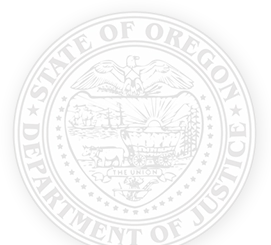The 2010 Public Records and Meetings Manual imposes presumptive deadlines and gives the Attorney General greater latitude to review excessive fees
Attorney General John Kroger today unveiled the 2010 Public Records and Meetings Manual that includes significant changes on deadlines and fees.
“I’m committed to aggressively improving transparency in Oregon government,” said Attorney General Kroger. “The 2010 Public Records and Meetings Manual is an important step in that direction.”
The online Manual can be found here: https://www.doj.state.or.us/public_records/manual/index.shtml
Changes to the Manual reflect new legislation, recent court decisions and a fresh look at previous interpretations of the law. Key changes include:
- The Manual is being published online, at no charge, in an HTML format designed to allow users to easily find relevant discussions. The guidance in the Manual has never before been so readily accessible. This is the first time in decades that the Manual is available at no cost from the date of its publication. The HTML format will allow the Department of Justice to update the Manual more regularly, which should lower the cost.
- The Manual revisits a longstanding legal interpretation that allowed public bodies to take as much time responding to public records requests as they could justify under the nebulous standard of “reasonableness.” Focusing on the language of the law, the 2010 Manual clarifies that it is the public’s right of inspection that must be reasonable. Thus, public bodies must make records available as quickly as they reasonably can. The Manual suggests that 10 working days should usually be a sufficient amount of time to respond to typical records requests, while recognizing that more time may be required under some circumstances.
- The Attorney General can examine state agency fees if it appears that the true purpose of the fees is to effectively deny the request rather than recoup costs as the law allows. The Manual previously opined that the Attorney General had no authority to review state agency fees.
- When deciding whether a fee waiver or fee reduction is appropriate, the public interest in disclosing a document must be considered. Previously, the Manual invited public bodies to consider how much it would burden them to waive or reduce their fees, without requiring them to put the public’s interest in disclosure on the other side of the scales.
- The general discussion of exemptions has been revised to more closely follow the way in which public bodies typically consider requests. The goal is to encourage pro-transparency decisions.
- The section describing the process for appealing a public body’s decision has been completely reorganized. It is now more accurate and, hopefully, easier to follow.
In addition to these revisions, there are numerous changes to improve clarity, precision, consistency and accuracy; to avoid redundancy; and to make the Manual more current.
Michael Kron, Government Transparency Counsel, led the effort to overhaul the Manual.
A year ago, Attorney General Kroger launched his Government Transparency Initiative. He held meetings across the state to gain input from the public, the press and government officials. In additional, dozens of meetings have been held with people who are interested in overhauling Oregon’s Public Records law. Hundreds of comments and suggestions have been received as a result of these efforts.
The next step is to draft legislation for the 2011 Legislature to further improve the law and increase transparency in Oregon government.
Attorney General John Kroger leads the Oregon Department of Justice. The Department’s mission is to fight crime and fraud, protect the environment, improve child welfare, promote a positive business climate, and defend the rights of all Oregonians.
Contact:
Tony Green, (503) 378-6002 tony.green@doj.state.or.us
